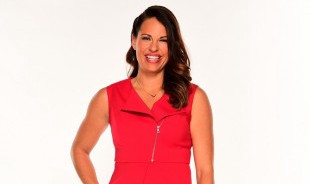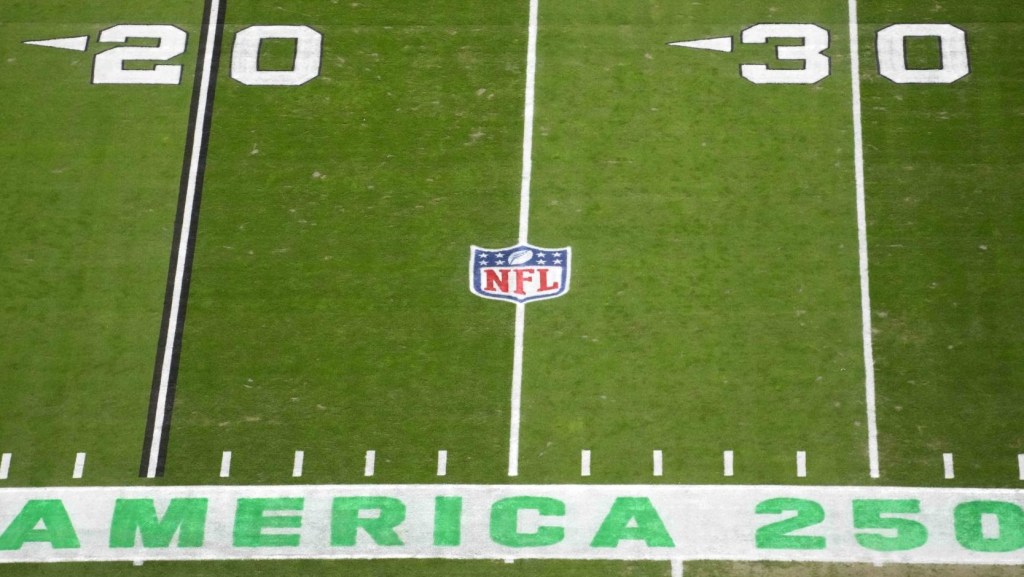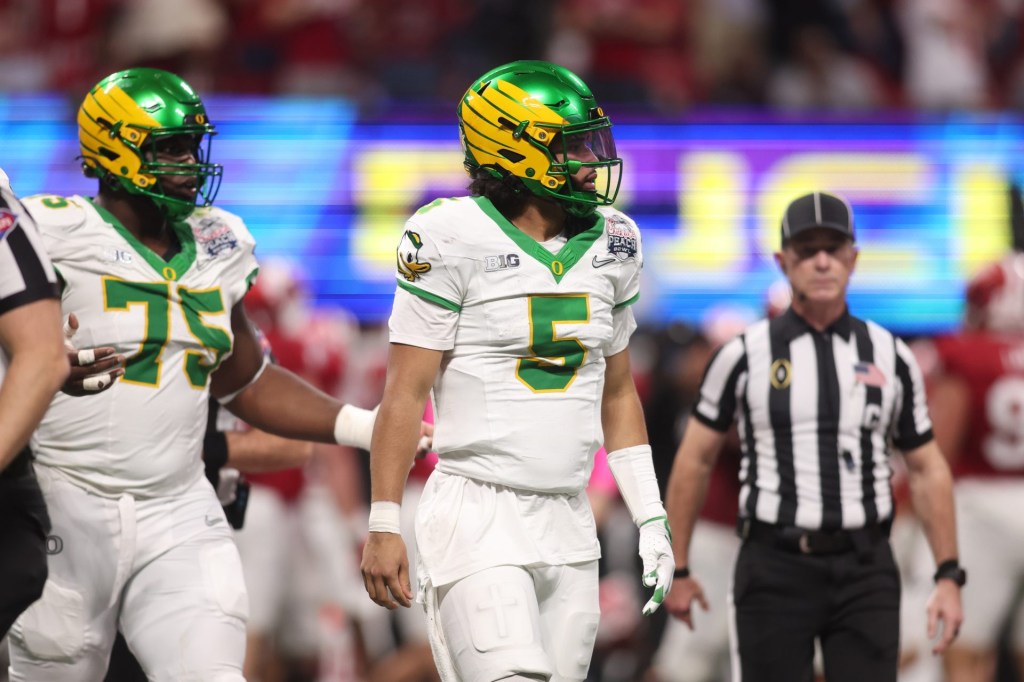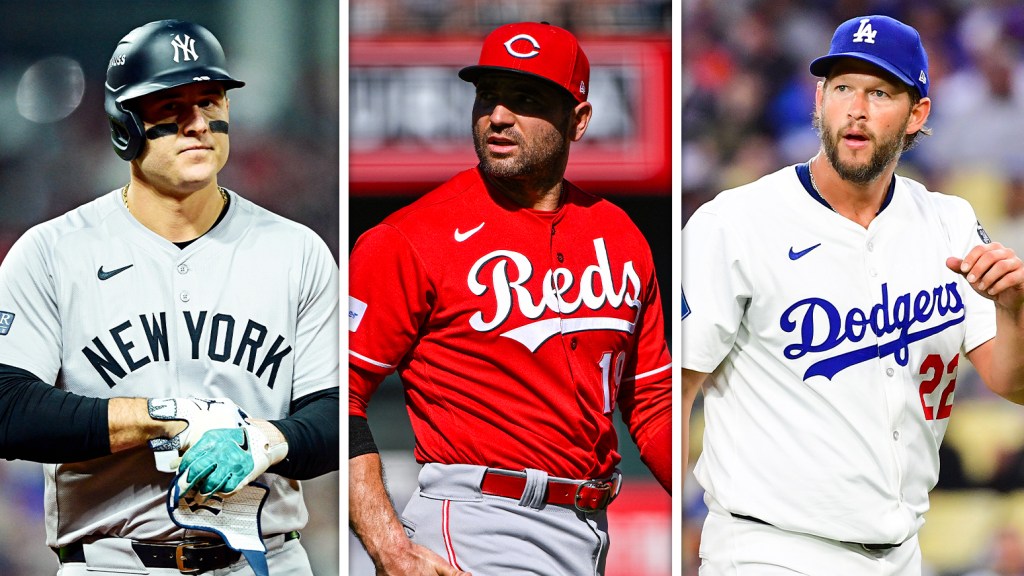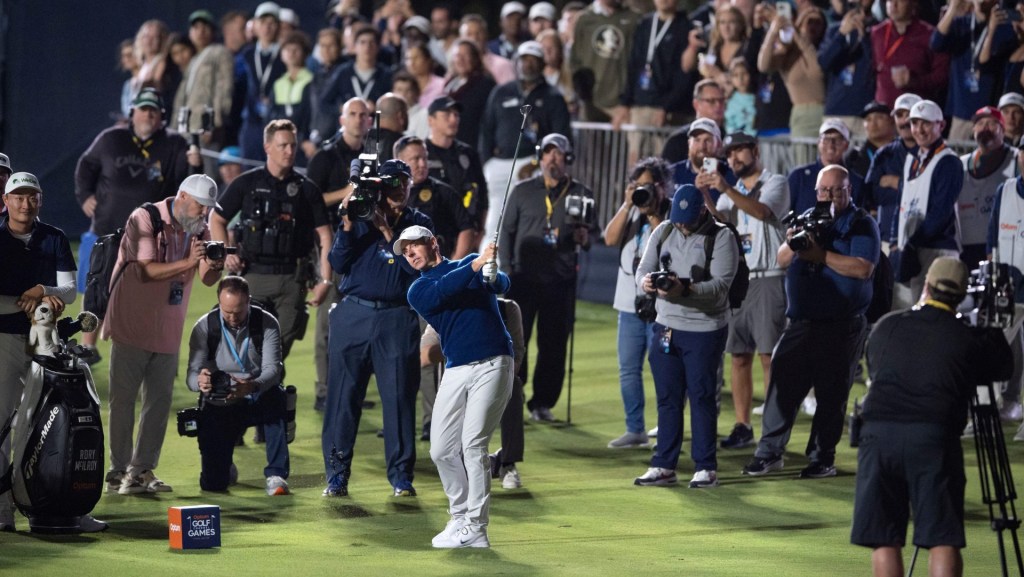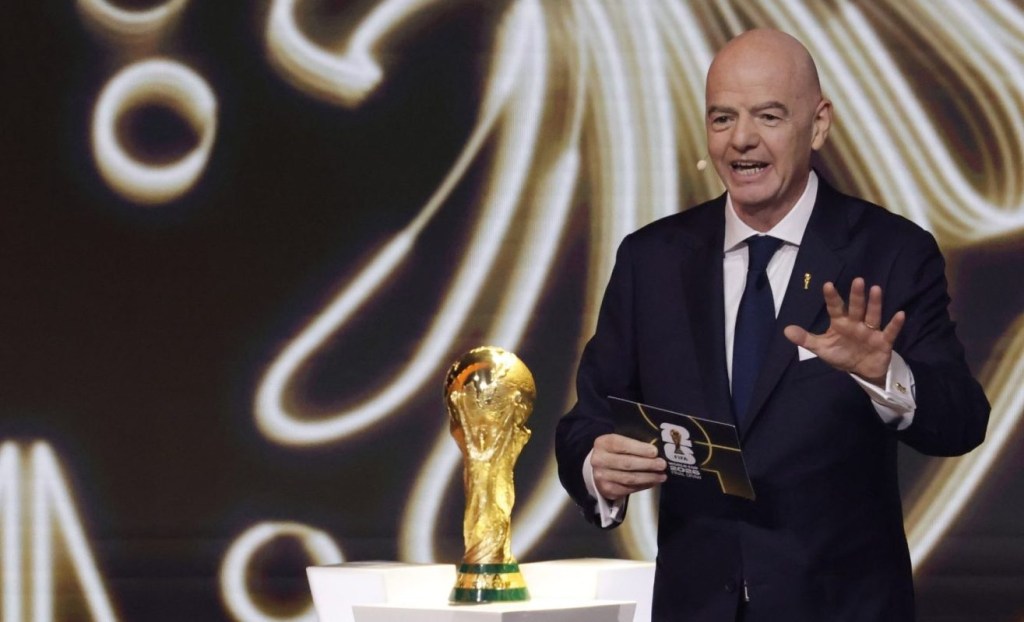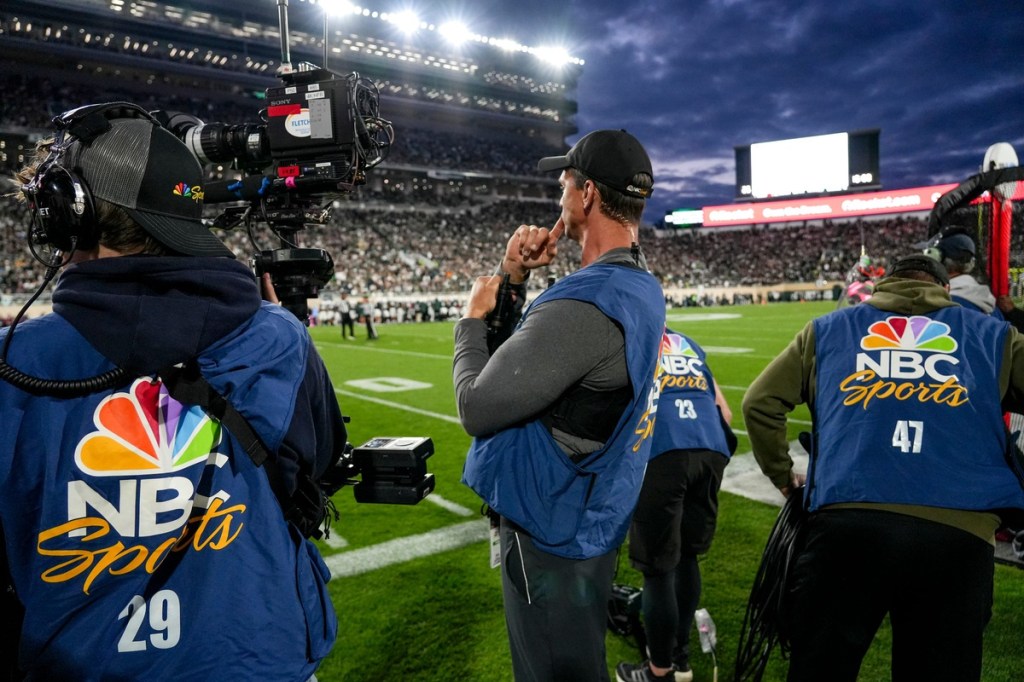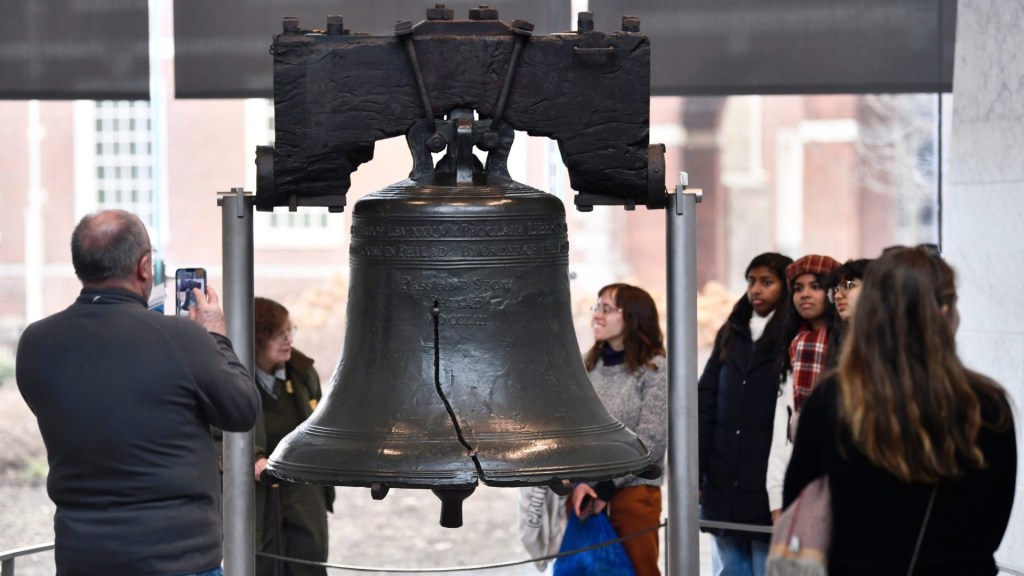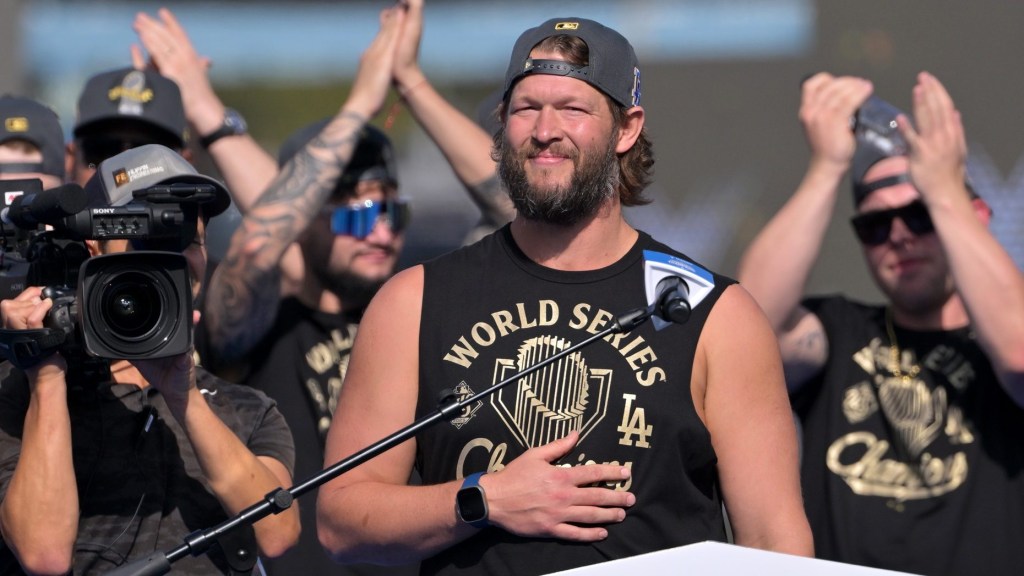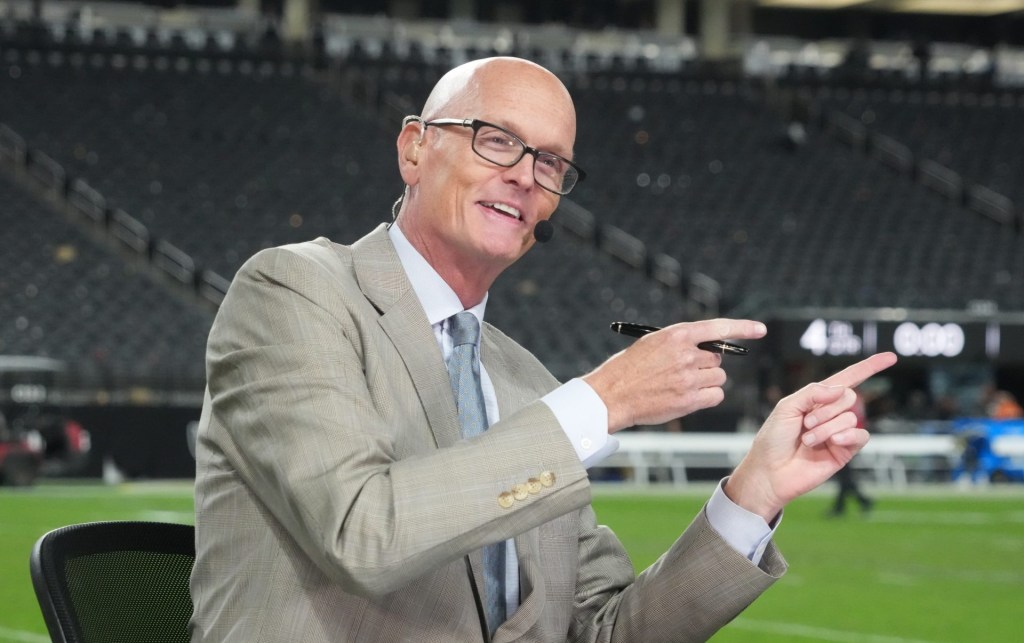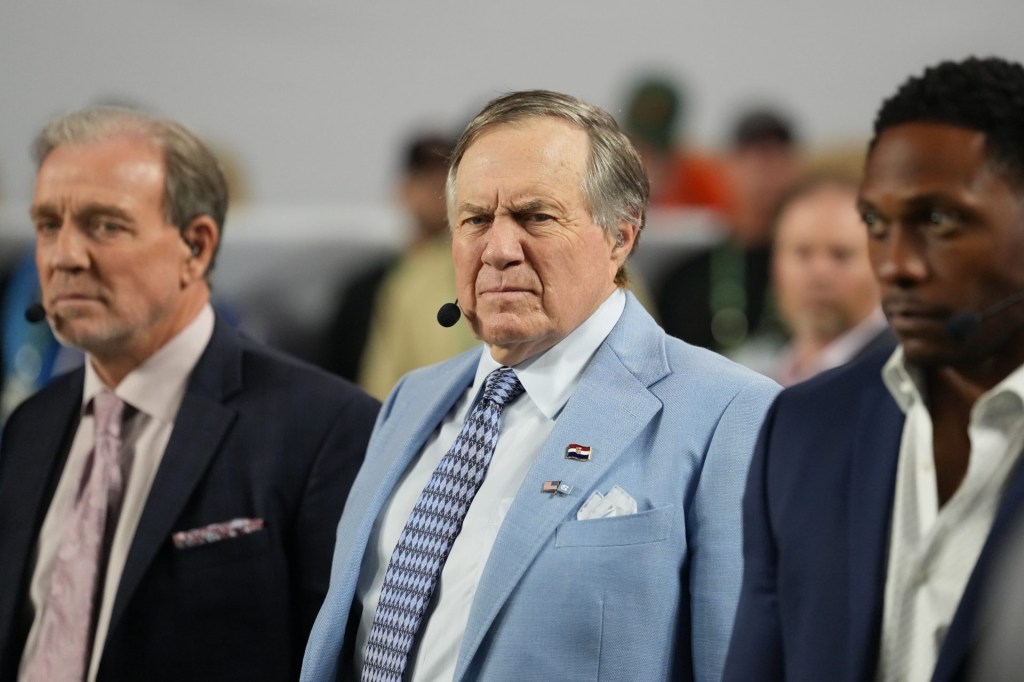This interview is presented to you by the University of Nebraska — Lincoln Master of Arts in Business with a Specialization in Intercollegiate Athletics Administration
By: Meaghan McCloskey, @Meaghan_Mc3

ESPN Analyst Jessica Mendoza has always liked a challenge. That’s part of why she loves baseball so much.
“In baseball, a guy hits .300 and is still considered really good, even though he’s failing a lot. What other sport has that much failure and you’re still considered good? I love that it challenges you, physically and mentally, no matter how good you are.”
Mendoza also credits her dad, who was a head baseball coach, for giving her the knowledge and understanding of baseball that she has. She was always in his back pocket, wanting to do everything he did. Even though she was involved in a variety of sports as a kid, she had an upper hand in softball because of her baseball background.
“Once the trail is blazed, it’s up to me (and other women in sports) to keep doing a good job for the next generation.”
“There are so many mechanics in baseball and softball. I was able to set myself apart with my knowledge and understanding because of my dad.”
Mendoza’s talent on the field helped lead her to Stanford, where she played for four years before joining the United States Women’s National Softball Team. She chose Stanford because, like softball, it wasn’t necessarily an ‘easy road.’
“I loved that you had to get in as a student. You’re recruited by some great schools, but I loved knowing I would graduate with a degree that represented what I did, compared to what I played. My degree was in American Studies, which had classes from all different schools, such as music, history, English and math. It gave you a lot of options so you could float around because of the variety. It was kind of all over the place, like me.”
After graduating, Mendoza had the chance to represent the United States in the 2004 and 2008 Olympics. She said her passion for the sport multiplied by millions when she had ‘USA’ across her chest and heard the National Anthem while wearing it. It also made her realize how many opportunities women in America have in sports.
“You’re interacting with athletes from all over the world and the opportunities women and girls have in America, like youth sports and Title IX, don’t exist in other countries.”
“People take the National Anthem for granted, but you really realize what the song and flag mean when you’re there. I’m never taking the National Anthem for granted again,” Mendoza said.
In 2007, while playing on the national team, Mendoza was approached by ESPN about auditioning for one of their softball analyst positions.
“College softball had really grown and ESPN was looking for more analysts. I was being interviewed a lot while playing and they asked me to audition. I almost said no because of my lack of broadcasting experience, but decided ‘why not?’, auditioned, and loved it. I ended up having five years where I was broadcasting and playing.”
When asked if there was anything she did in college to prepare for broadcasting, Mendoza said she had no interest in it while in college. She wanted to move to D.C. and work in politics and education reform. Now, she says broadcasting is a dream job in so many senses.
“I get to be on field with the players, right now, at one of the most amazing times of the year- postseason baseball. It doesn’t always feel like a job and is something I would do without pay.”
In her current role at ESPN, she earned the honor of being the first female in a broadcast booth for a Sunday Night Baseball telecast. With this came a fair share of pressure and naysayers, which after years of preparation, was nothing Mendoza couldn’t handle.
“I put pressure on myself more than I felt pressure from others. I wanted it to be more of a baseball game than about gender. I didn’t want to be brought in unless it would be continual and because I was the best person for the job, not because of the headlines it would make.”
“I’m a social person and enjoy communicating with people. In college, the hardest part was the social aspect because meeting and interacting with others was just as important to me as workouts and academics.”
“The negativity about being in the booth was something I had to learn how to handle. When I first saw and heard the complaints and criticism about me not belonging in the booth because I’m a girl, I laughed. I grew up around baseball teams and in California, nobody talked like that. I guess you could say I’m blessed with a background not based on gender. I’ve had to modify my relationship with social media because sometimes the things people said would be really hurtful.”
“It took some adjusting for me, but I realized it’s okay to be me and live in the moment. I don’t think about where I could or should be.”
Mendoza is also aware of the responsibility she has to keep doors like this open for a multitude of other women saying, “Once the trail is blazed, it’s up to me (and other women in sports) to keep doing a good job for the next generation.”
While she is a trailblazer, Mendoza credited the likes of Billie Jean King and Donna de Varona for helping give her this kind of opportunity, saying how they were there for Title IX and together established the Women’s Sports Foundation, which Mendoza is also involved with.
“I love being able to educate people on a variety of different stages, whether it’s getting active or staying involved in sports. Youth sports can be expensive, so [WSF] has funding that goes towards helping athletes (and their families) pay for equipment and travel. We’ve also done a lot of work in D.C. to get legislation changed and improved upon to be able to provide opportunities for women and girls.”
When asked about her goals, Mendoza said she wants to make a change in the world by telling stories and creating more education and knowledge in disparities in countries. One example she used was Venezuelan baseball players.
“I want to educate people on the politics of the countries these players are from and bring awareness to situations in their home countries. I want people to think broader than just sports because [these players] aren’t ‘just’ Latin players.”
Mendoza said the hardest part of her job has been adjusting her family life. The mom of two boys, three and seven, she said her husband is tremendous.
“Right now, I’m missing Halloween because of the postseason. Halloween is a pretty big holiday for kids that age, and it sucks having to miss it.”
When asked about how she handles the “work-life balance”, Mendoza’s response was one that everyone should take stock in.
“I want to throw out the term ‘balance’ for working moms. The word ‘balance’ is over our heads because we’re trying to be there for our kids and work, thinking ‘everything will be in balance,’ but it’s never going to be. It doesn’t have to be perfect. It’s okay to be in one place and focus only on that. It took some adjusting for me, but I realized it’s okay to be me and live in the moment. I don’t think about where I could or should be.”
Finally, Mendoza shared some advice she has for women (or anyone) who want to get into sports or sports broadcasting. She said to, “think broad” and emphasized thinking of long-term possibilities and not just, “here and now.”
“Find four or five things you want to do within television, whether it’s in front of the camera or behind the scenes. A lot of women do what they see, like the more traditional roles of anchoring or sideline reporting. There are some really cool positions out there, like producing, so find out what those are, because they can lead to other positions.”
You can follow Jessica on Twitter, Instagram or her Facebook Fan Page.
